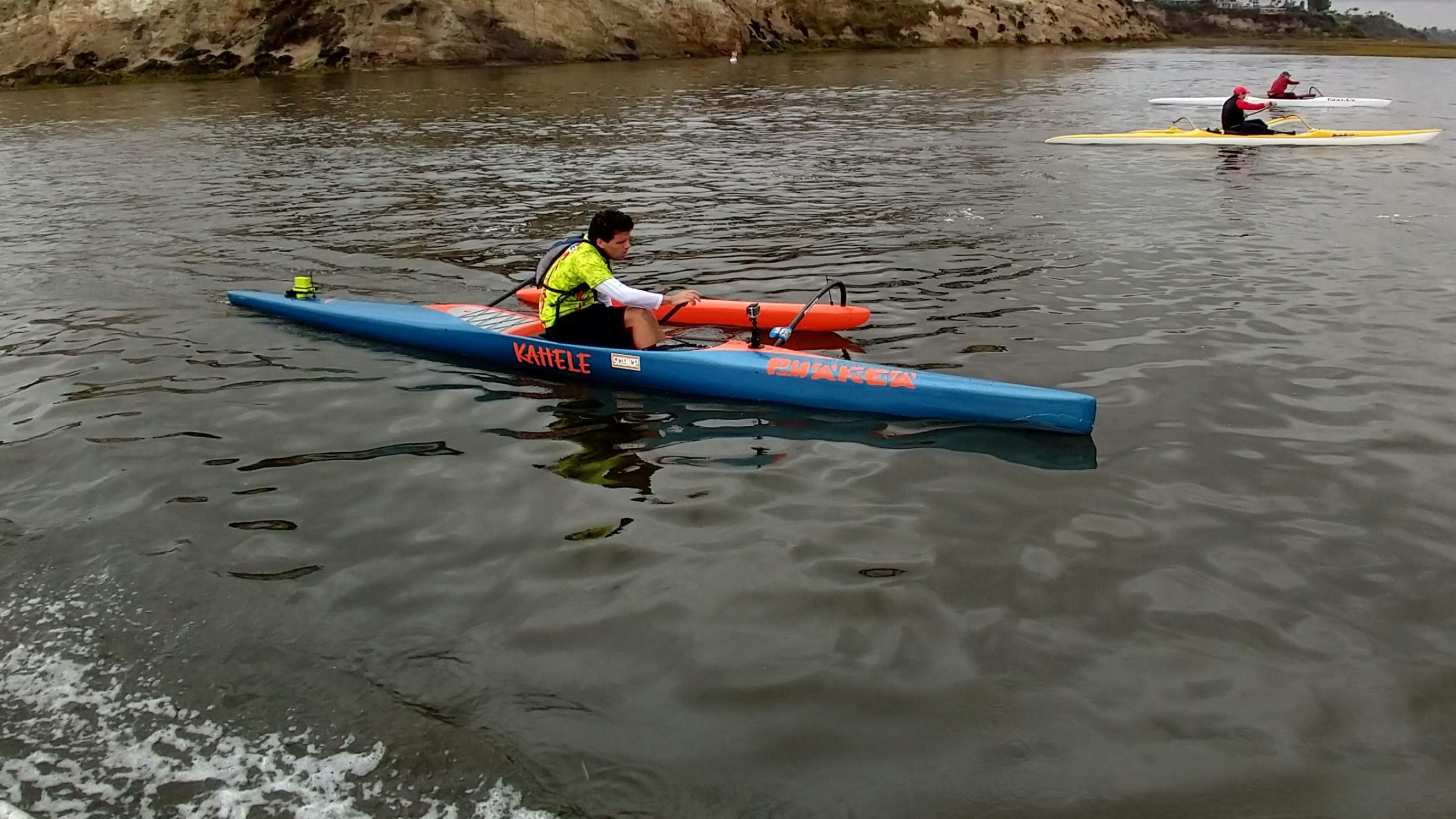
Copyright © 2025 Mark S Baldwin. All rights reserved
Bringing equity to outrigger canoeing through community-driven assistive technologies
"CoOP" or the Cooperative Outrigger Paddling system is a multipurpose device that enables ruddered one-person canoes to be steered remotely.

CoOP is a groundbreaking platform that redefines accessibility in open-water paddling. A research project started at the University of California, Irvine and developed in collaboration with The Makapo Aquatics Organization, CoOP brings together a unique blend of hardware, software, and inclusive practices to make outrigger canoeing possible for members of the disability community.
At the core of CoOP is an innovative transmitter and receiver system that enables remote control of the canoe’s rudder. This allows paddlers who may be unable to use traditional foot pedals or who are visually impaired to enjoy a new level of independence on the water. For many, it’s the first time they can fully participate in this rich community-oriented sport.
Through CoOP, our goal is to make paddling accessible and inclusive, providing a sense of freedom and community connection that traditional systems simply don’t allow. Whether you’re an experienced paddler or new to the sport, CoOP opens up a new world of possibility and shared adventure.
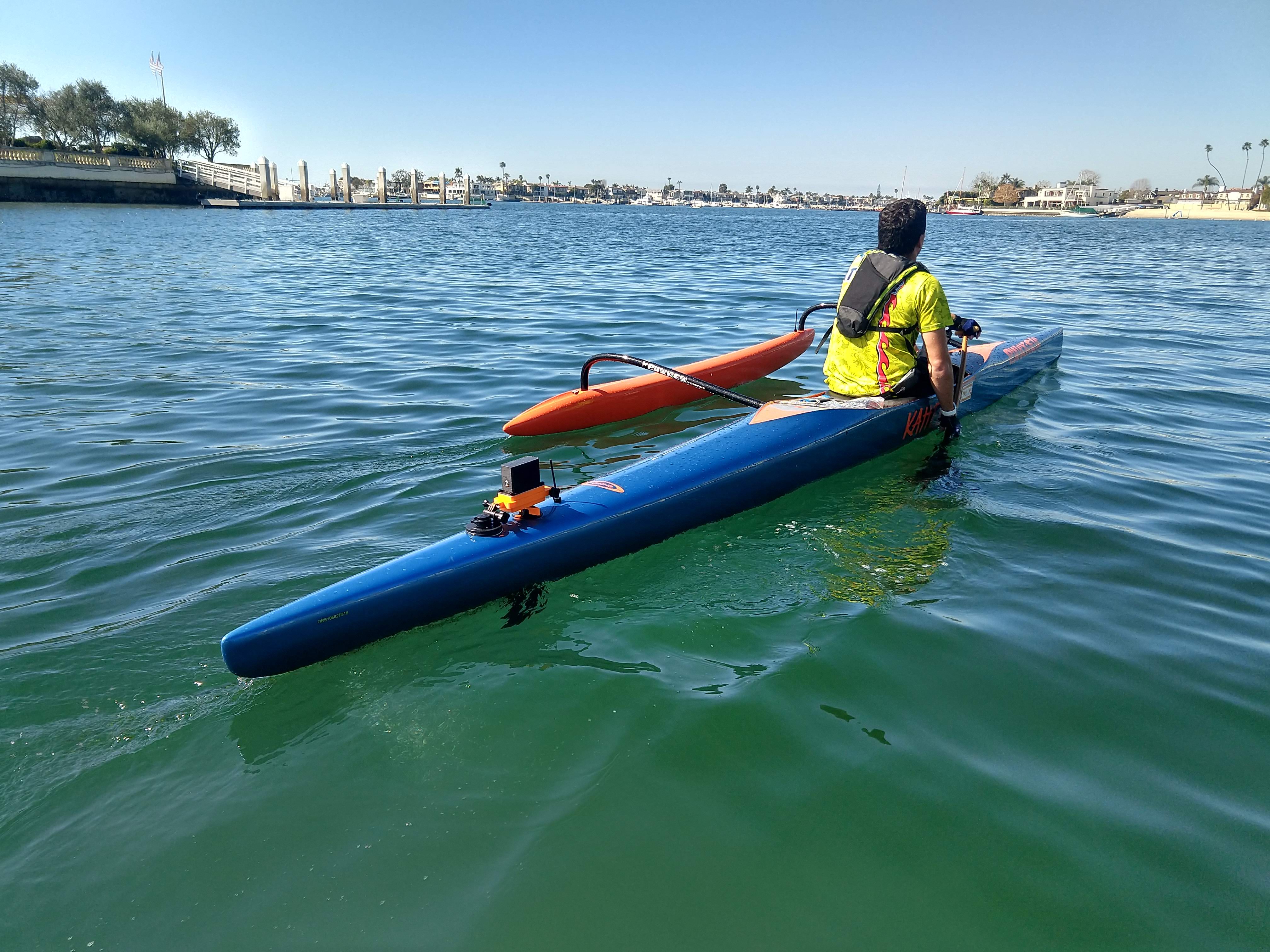
The Origins and Evolution of CoOP
CoOP was sparked by a pivotal question from the Executive Director of The Makapo Aquatics Project, RJ Derama:
How can we get a blind paddler in a one-person outrigger canoe by themselves?
This question initiated a collaborative journey led by Dr. Mark S. Baldwin, then a PhD student at the University of California, Irvine. Guided by co-design and participatory design methodologies, Dr. Baldwin engaged directly with the paddling community, collecting insights and expertise from those with firsthand experience on the water. Working openly and iteratively in public spaces, the team's collective knowledge shaped CoOP's initial prototypes. The insights gained from this public, community-centered process became the foundation of CoOP's design and development. Over time, these prototypes evolved into the final iterations that still serve as the basis of the CoOP system today.
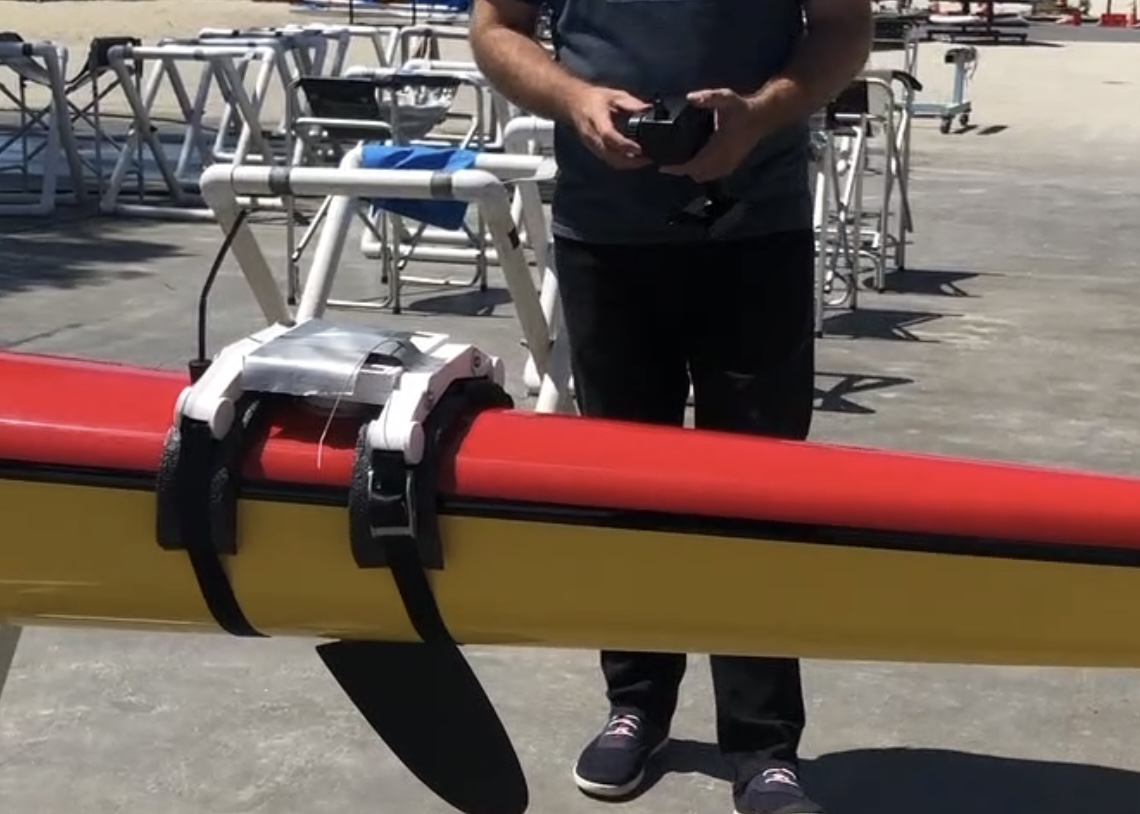
In 2018, CoOP's development process accelerated significantly. Between January and May, several iterations of the system were designed and tested, reaching a stable and functional state by late May. With the technology in place, the team began exploring the practice of using CoOP with blind paddlers. From June to late September, many miles were paddled as the CoOP team honed their approach to navigating a blind paddler in the open ocean.
CoOP was put to the ultimate test in October 2018, when a blind paddler competed in the Off Da Couch race at the Newport Aquatic Center in Newport Beach, California, marking a historic first. Guided by an experienced outrigger canoe coach following alongside in a motorized boat, one of Makapo's blind paddlers competed against sighted paddlers from across the country.
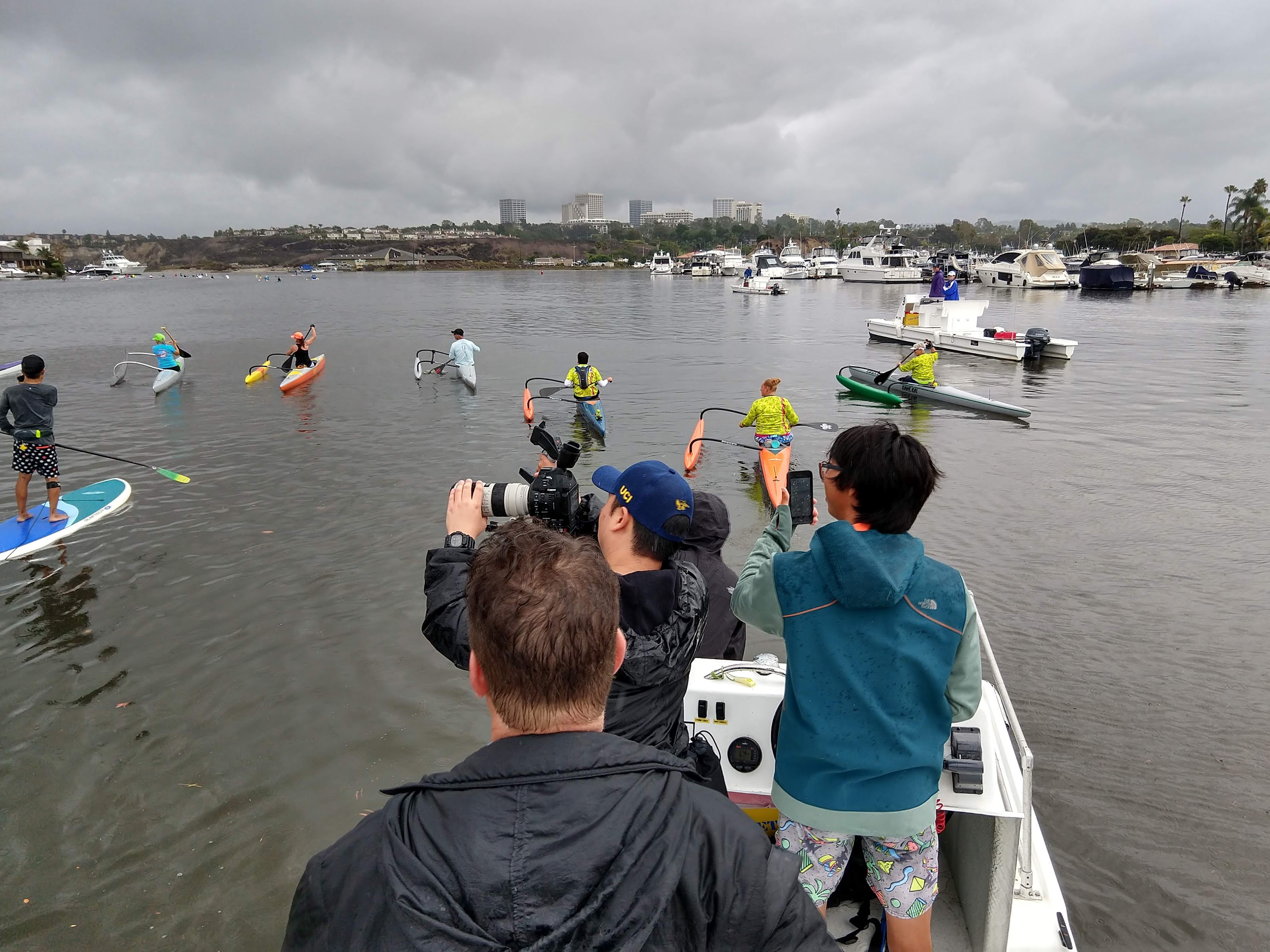
By 2022, CoOP had undergone several additional refinements, including the development of a custom steering controller, and had been used in numerous local races. That year, CoOP made its international debut at the Queen Lili'uokalani Canoe Races in Kona, Hawaii. Once again, the CoOP system enabled a blind member of Makapo's race team to compete side-by-side with some of the world's best outrigger paddlers, showcasing the transformative potential of the platform on a global stage.
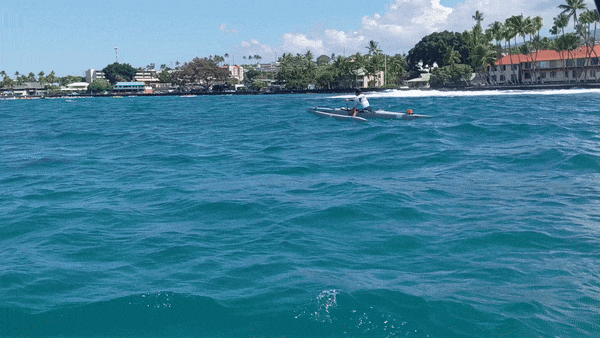
In the years since its inception, CoOP has evolved into a versatile platform, empowering individuals who are unable to steer themselves in an outrigger canoe. In addition to its continued use in recreational and competitive race events, its applications have expanded significantly, including:
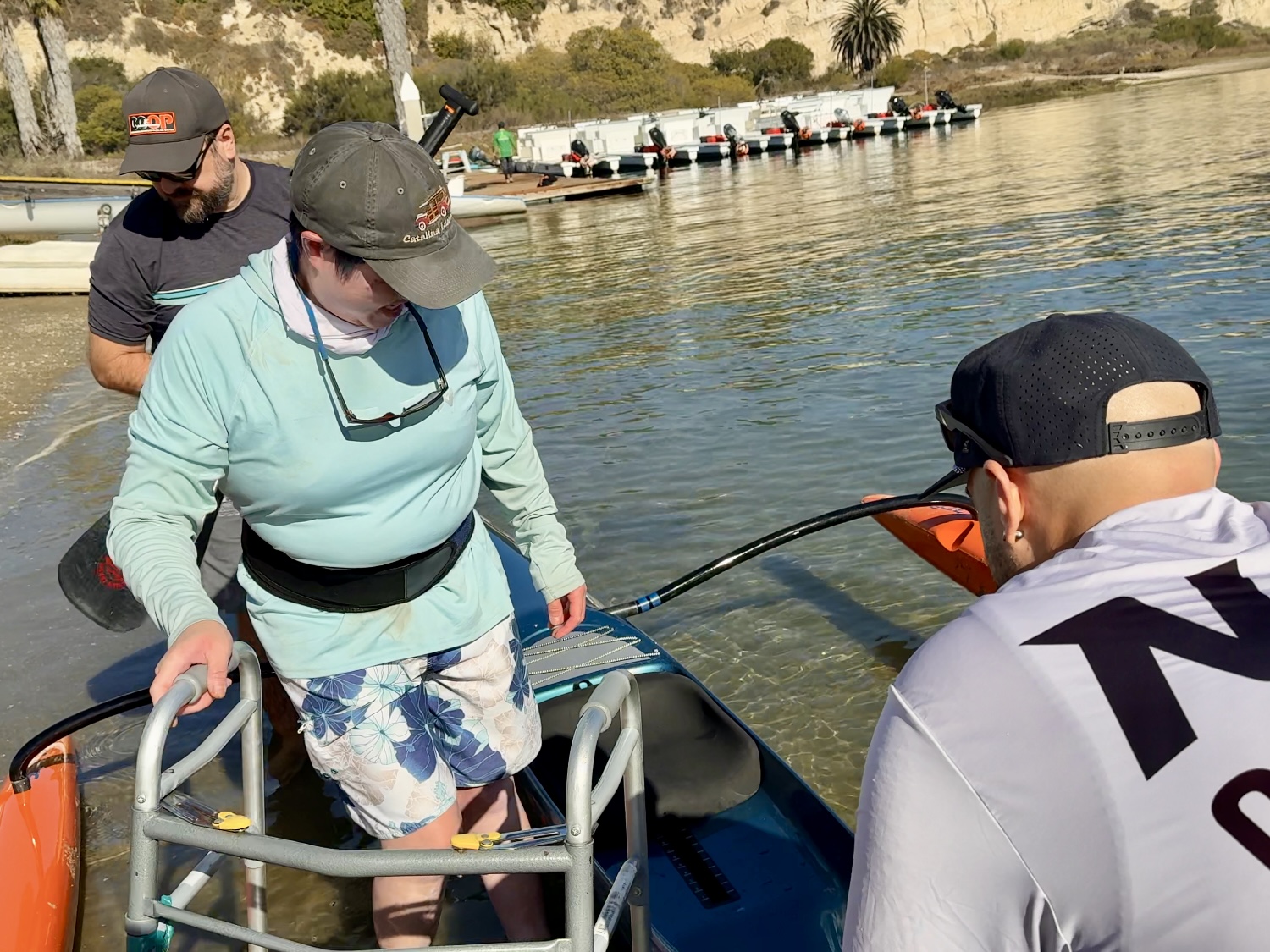
We have exciting plans for the future of CoOP. To learn more about the CoOP platform and explore opportunities to paddle with CoOP, visit our Participation section to learn more about how you can get involved.
CoOP is Community

CoOP began through a community partnership with Makapo Aquatics Project, whose mission to connect people with disabilities to the water has guided our development. Makapo's leadership, paddlers, and volunteers have contributed through testing, feedback, and by showing how assistive technologies can be created with communities, not just for them.
Outrigger paddling, with roots in Pacific Island traditions, is a cultural practice centered on connection, teamwork, and care. These values align with the goals of inclusive design, making outrigger paddling a strong setting to improve and expand adaptive sports technology.
Building on this foundation, we have already deployed CoOP at two clubs — one in Hawaii and one in Brazil — where paddlers are using the system in both training and competition. But for CoOP to succeed, our community needs to grow. We aim to see paddlers with disabilities join crews at clubs around the world, and for our technology to be accepted at all levels of competition. Together, we can build a paddling community where everyone has the opportunity to take the helm and where the future of the sport includes all who wish to take part.
Transforming adaptive sport through interdisciplinary research
The CoOP platform represents a novel approach to assistive technology creation, combining community-driven design with multimodal interaction principles. By addressing key challenges in accessibility, such as overreliance on auditory instructions and inefficiencies in verbal navigation, CoOP demonstrates how assistive technologies can foster equitable participation in both recreational and competitive activities.
Built on research into how people use technology, this work emphasizes the interplay between tools, tasks, and users, framing CoOP as an extension of natural human activity. The system’s design and implementation reflect the needs, challenges, and aspirations of its intended users, particularly blind paddlers.
Each of CoOP’s innovations grows out of real-world paddling experience and direct feedback from the disability community. By designing with multimodal interaction in mind from the start, the system moves beyond single-sense solutions, offering paddlers more ways to receive information and maintain control. The result is technology that supports independence while keeping paddlers engaged with their environment and teammates.
Traditional verbal steering relies on sighted guides providing constant instructions like "left" or "right" to blind paddlers. While effective in basic navigation, this approach creates several challenges:
Field observations highlighted these issues during early trials with blind paddlers. One participant shared,
“The constant commands make it feel like I’m following orders, not paddling my own canoe.”
CoOP addresses these limitations by replacing verbal commands with multimodal feedback, including a combination of:
In trials conducted during long-distance paddling sessions, blind paddlers reported feeling a greater sense of autonomy and immersion. Quantitative data supported this, with navigation errors decreasing compared to sessions using verbal steering alone.
During early testing, verbal steering frequently led to zigzagging courses due to delayed or imprecise feedback. For example, in a trial on a 2-mile open-water course, paddlers using verbal steering experienced average deviations of 15–20 degrees from their intended trajectory. This inefficiency required constant corrections, leading to fatigue and frustration.
With CoOP, paddlers maintained an average deviation of less than 5 degrees, reducing overcorrections and enabling smoother, more efficient navigation. One coach remarked, “The difference is night and day—this system doesn’t just make steering easier; it transforms the entire paddling experience.”

The development of CoOP relied heavily on public co-design, involving blind paddlers, sighted guides, and coaches at every stage. Through iterative testing and feedback sessions, the system evolved to address real-world challenges identified by its users.
Initial prototypes relied on a single vibration pattern for steering cues, which led to confusion during testing. Feedback from paddlers highlighted the need for more distinct signals. The design was adjusted to include two patterns: a short pulse for left turns and a long pulse for right turns. This modification resulted in a 90% reduction in steering errors during subsequent trials.
Field tests conducted in diverse environments, from calm harbors to open ocean courses, provided critical insights into the system’s performance. For instance, trials in rougher waters revealed the need for enhanced signal strength, prompting hardware adjustments that improved reliability under challenging conditions.
While CoOP was developed for outrigger paddling, its design principles have relevance far beyond the sport. The system demonstrates how assistive technologies can enhance participation without isolating or overburdening any one sense, and how greater autonomy can reshape relationships in shared activities. These lessons can inform future innovations across a range of adaptive sports and community settings.
CoOP highlights the importance of respecting existing sensory modalities in assistive design. By freeing the auditory channel from constant navigation commands, the system enables blind paddlers to remain immersed in the natural soundscape while receiving effective guidance.
Learn more about the CoOP community participation program
The CoOP program is an initiative designed to bring the CoOP platform to paddling clubs, making outrigger canoeing more accessible and inclusive. With years of experience operating CoOP in diverse environments, we're excited to take the next step by deploying the system to our first club in January 2025.
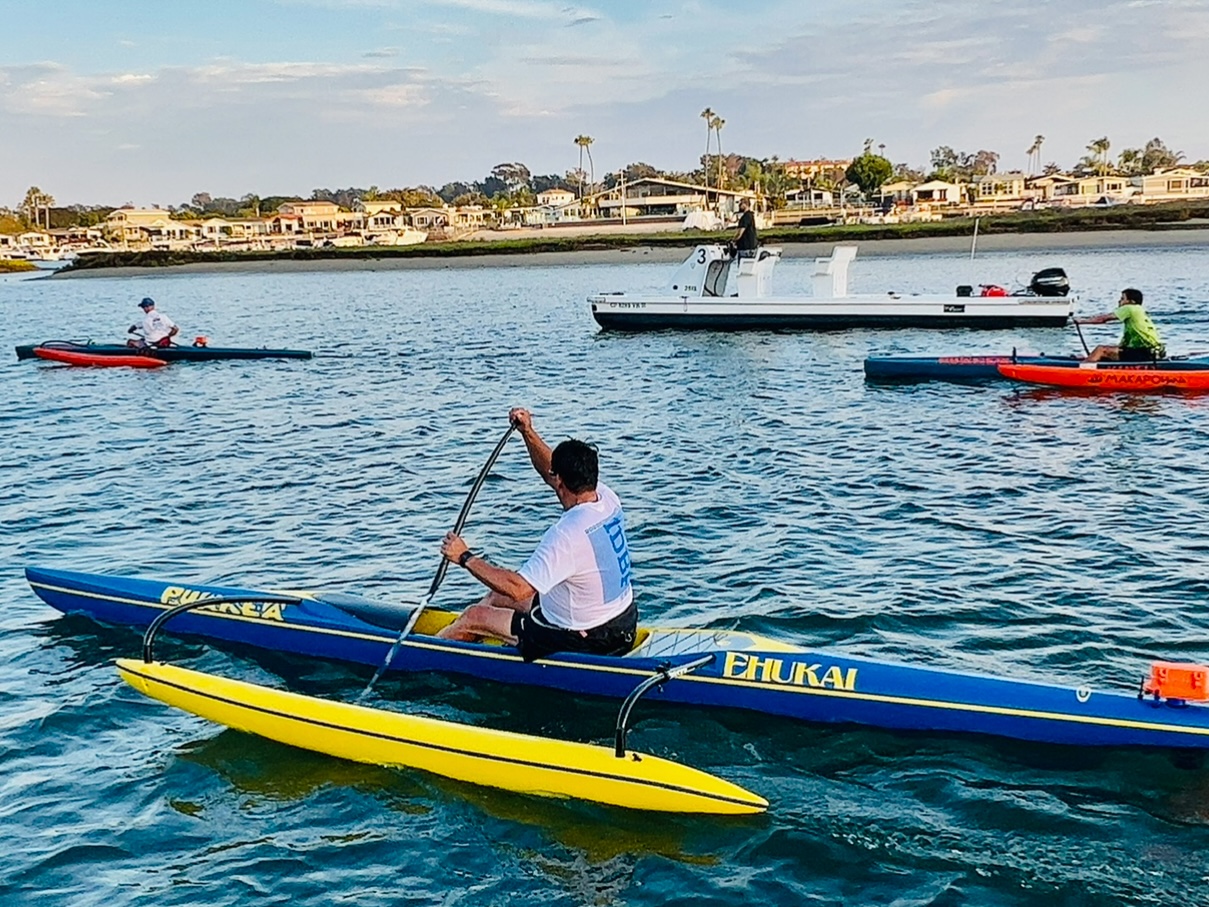
To ensure the successful adoption of CoOP, we require a minimum of two club members to complete a training program before deployment. Our training formats are flexible and can be tailored to meet the specific needs of each club. Upon completing the training, participating clubs will receive:
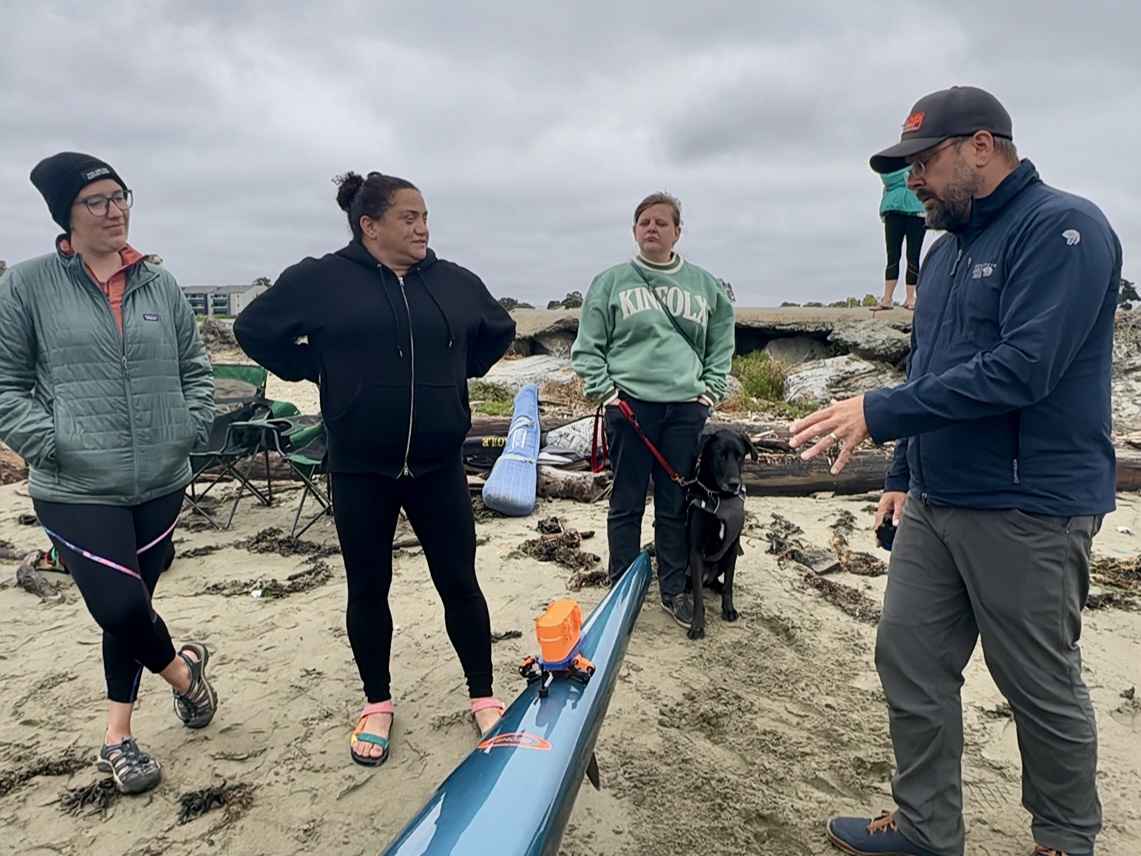
We are seeking clubs that can demonstrate a need for CoOP, such as having a para-athlete member who would directly benefit from the system. Since this program is still in its early stages, we ask that our early partners be willing to engage in collaborative activities with us, such as providing feedback, participating in case studies, and sharing best practices with other clubs.
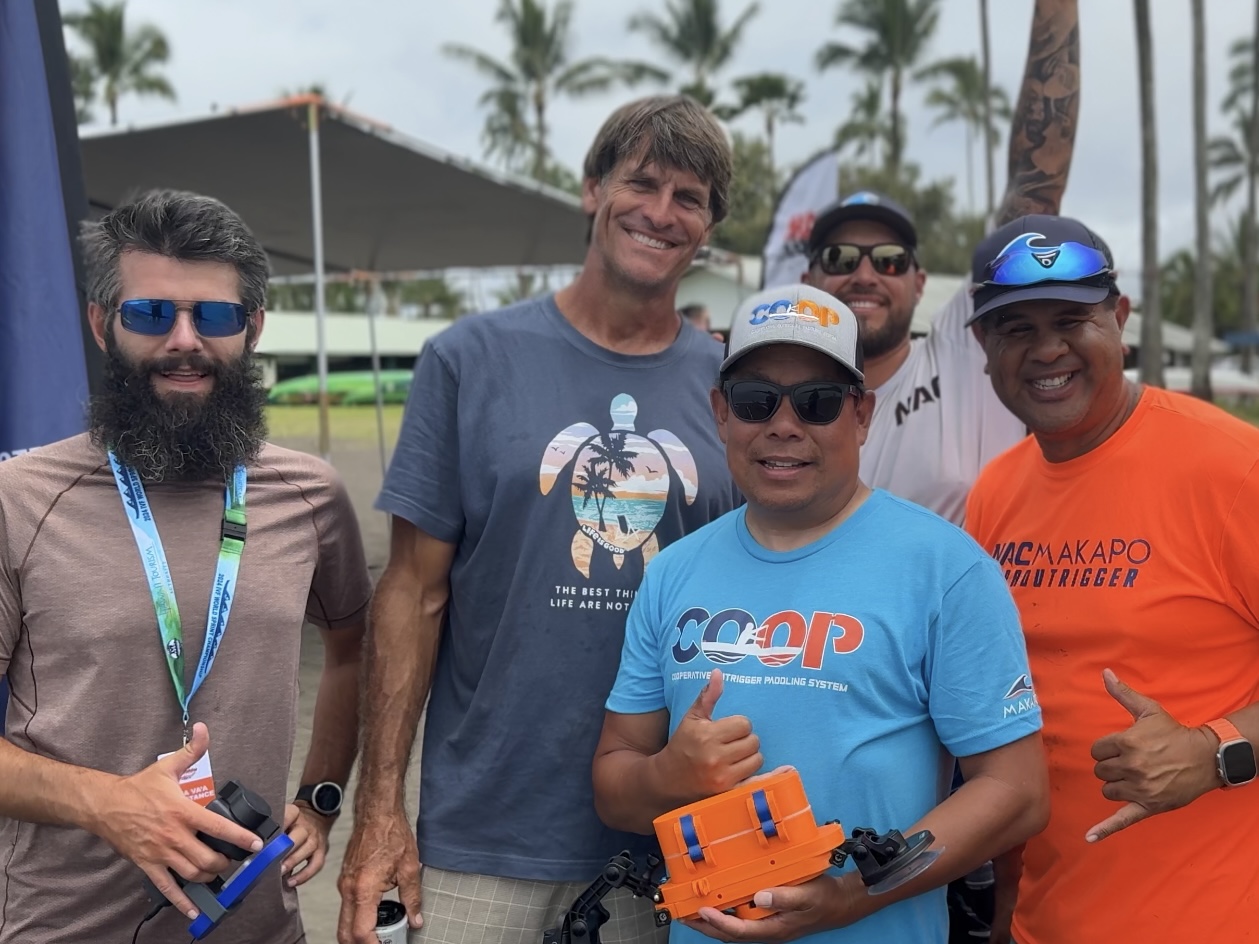
As we build out the program, our goal is to expand CoOP to more clubs, create a community of inclusive paddlers, and refine the system based on real-world feedback. This collaborative approach ensures that CoOP continues to meet the evolving needs of its users, fostering a more equitable paddling experience for all.
Let us know if you are interested
Reach out if you are interested in receiving a CoOP or just want to learn more.
We value your privacy. Your email will only be used for CoOP-related communication and will never be shared or used for marketing.
E-mail: coop@makapo.org